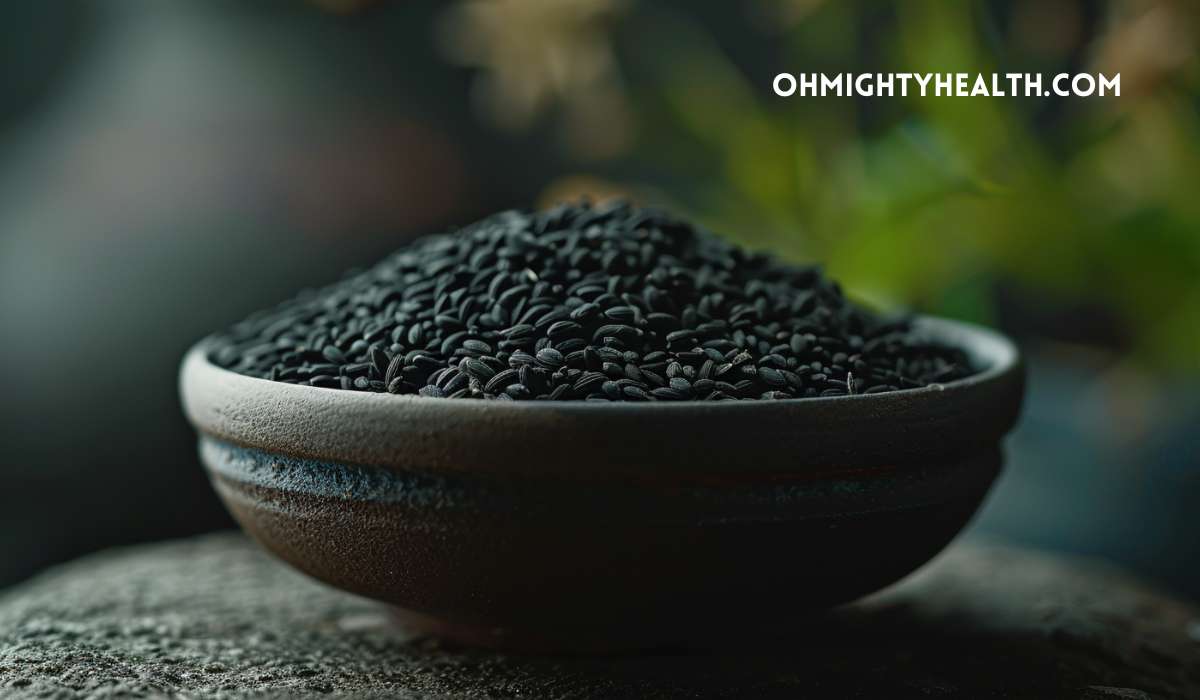Ultimate Guide to Black Seeds: Health Benefits & Uses
Incorporating natural ingredients into our lifestyle is crucial for maintaining optimal health, and black seeds are a powerful addition.
Known for their anti-inflammatory effects, vitamins, and minerals, these tiny seeds, in my opinion, are a must in your arsenal of natural ingredients.
They provide a wide range of health benefits, making them crucial for beginners interested in exploring natural health remedies (check the list of health benefits below).
As a health coach, I’ve seen firsthand how incorporating natural ingredients like black seeds into one’s life can create significant health improvements.
Their versatility in both culinary and medicinal uses makes them an ideal starting point for anyone looking to enhance their health naturally.
Oh Mighty Health is all about exploring the benefits of natural ingredients, and black seeds are a perfect example of nature’s potency.
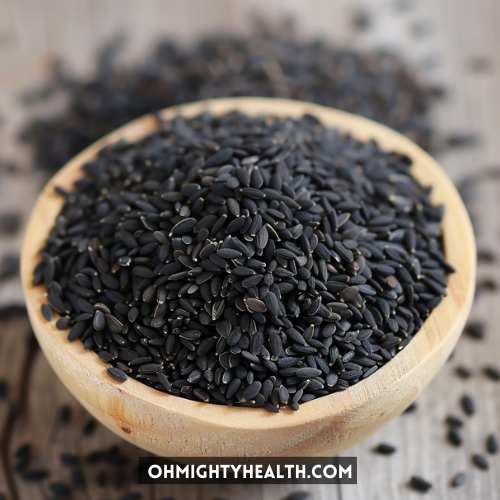
Meet the potent black seeds
Black seeds, or Nigella sativa, are more than just a spice. They are one of the most revered medicinal plants in history.
Originating from Saudi Arabia, these seeds have been used for centuries for their healing properties.
They contain a unique combination of anti-inflammatory effects, vitamins, minerals, and antioxidant properties, making them a cornerstone of natural medicine.
Their significance in health and wellness cannot be overstated. As someone passionate about natural health, I find the history and benefits of black seeds fascinating.
They offer a holistic approach to health, which aligns with my belief in the importance of natural ingredients for maintaining wellbeing.
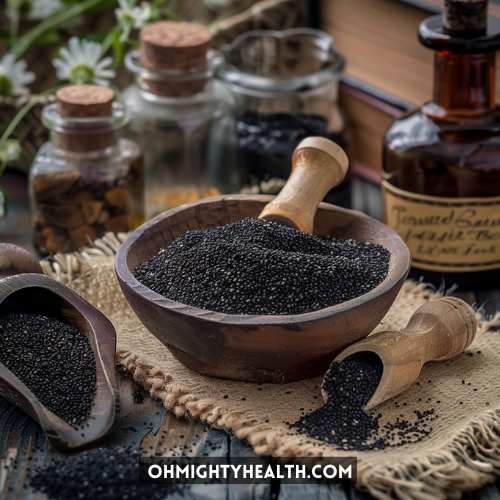
What are black seeds? Other common names
Black seeds are also known as black caraway, black cumin, and kalonji.
These tiny seeds have a rich history of use in traditional medicine. Their pharmacological properties are what make them stand out in the realm of natural health solutions.
These seeds have been utilised for their therapeutic benefits across various cultures for centuries. And for a good reason.
Understanding the pharmacological properties of black seeds is crucial for beginners. These properties are the foundation of the seeds’ health benefits, offering insights into how they work within the body.
It’s fascinating to see how these tiny seeds can have such a profound impact on health.
Origin and historical uses
The history of black seeds is as rich as their nutritional profile.
They have been used in various cultures for thousands of years, not just for their flavour but for their health benefits.
Their origin and historical uses shed light on the traditional wisdom that has recognised their value long before modern science did. Something that happens with many natural ingredients.
Primary bioactive components and nutritional profile
Black seeds are packed with beneficial compounds, which are the key to their health benefits.
As someone who formulates organic skincare, I’ve used black seed oil for its nourishing properties.
What’s in black seeds?
- Good fats: Black seeds contain healthy fats, including linoleic acid and oleic acid (below you’ll find a table in detail). These are the kinds of fats your body loves because they can help keep your heart healthy and your cholesterol in check. The skin loves them too.
- Vitamins and minerals: These seeds also have plenty of vitamins and minerals. They include calcium, which is great for your bones and teeth; iron, which helps keep your blood healthy; and zinc, which your immune system needs to fight off bugs and keep you feeling strong.
- Proteins: Black seeds have proteins, which are like building blocks for your body. They help you build muscle, repair tissues, and keep you in tip-top shape.
- Antioxidants: These are special compounds that fight off harmful free radicals, which can damage your cells. Thymoquinone is a fantastic antioxidant in black seeds that gets a lot of attention for its health benefits.
- Fibre: There’s also fibre in black seeds, which is fantastic for your digestive system. Fibre helps keep things moving smoothly and can help you feel full and satisfied after eating.
Here’s a table summarising the nutritional profile of black seeds.
| Nutrient Category | Details |
|---|---|
| Protein | 20-85% of vegetable protein |
| Fat | 38.20%, with linoleic acid (64.6%) and palmitic acid (20.4%) as major fatty acids |
| Fibre | 7-94% |
| Total Carbohydrates | 31.94% |
| Amino Acids | Major: glutamate, arginine, aspartate; Minor: cysteine, methionine |
| Minerals | Significant levels of iron, copper, zinc, phosphorus, calcium |
| Vitamins | Thiamin, niacin, pyridoxine, folic acid |
| Phytoconstituents | Alkaloids, saponins, sterols, essential oil (composition of many not chemically recognized or biologically verified) |
| Fixed Oil | 26-34%, with major fatty acids linoleic acid and palmitic acid |
| Essential Oil | 0.4%–2.5%, with thymoquinone as the most bioactive compound |
For more information, please visit this page.
Here’s the table for the oil’s fatty acids profile.
| Fatty Acid Type | Fatty Acid Name | Percentage (%) |
|---|---|---|
| Polyunsaturated Fatty Acids (PUFAs) | Linoleic Acid (Omega-6) | 55.6 – 58.9% |
| Linolenic Acid (Omega-3) | 2.45% | |
| Eicosapentaenoic Acid (EPA, Omega-3) | 5.98% | |
| Docosahexaenoic Acid (DHA, Omega-3) | 2.97% | |
| Monounsaturated Fatty Acids (MUFAs) | Oleic Acid (Omega-9) | 8.1 – 28.1% |
| Saturated Fatty Acids | Palmitic Acid | 11.4 – 12.5% |
| Stearic Acid | 3.1 – 3.2% |
Key highlights:
- Linoleic acid is the most abundant PUFA in black seed oil, beneficial for heart health and reducing inflammation.
- Omega-3 fatty acids like EPA and DHA are present, which are crucial for brain health, reducing cardiovascular risk, and managing inflammation.
- Oleic acid (Omega-9) is the predominant MUFA, known for its heart health benefits and ability to reduce bad cholesterol levels.
- Palmitic and stearic acids are the main saturated fats, which are essential in moderation for cellular structure and function.
For more information, please visit this page.
Reasons beginners should learn about black seeds
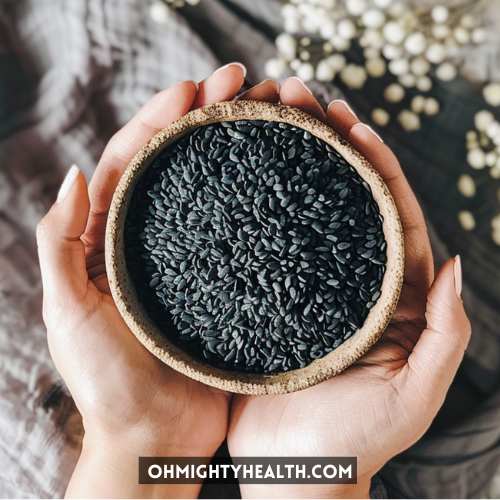
For beginners, understanding the antioxidant properties of black seeds is a great starting point.
These properties not only help in combating oxidative stress but also support overall health in numerous ways.
As a certified health coach, I encourage exploring the benefits of black seeds as part of a holistic approach to wellness.
The versatility of black seeds makes them an excellent ingredient for anyone starting on their natural health journey.
Whether used in cooking (more on this below) or as a supplement (more on this below), their antioxidant properties can provide a significant health boost.
It’s an easy and effective way to incorporate natural remedies into your daily routine.
Buying guide for beginners
When exploring the world of black seeds, the first product you will probably encounter is black seed oil.
It is important to know that not all oils are created equal. The quality of black seed oil can vary greatly, affecting its health benefits.
As someone who has used black seed oil in various formulations, I can reassure you of the importance of choosing high-quality oil.
Identifying high-quality black seed oil
I recommend looking for cold-pressed black seed oil, as this process ensures that the oil retains its nutritional and medicinal properties.
Because quality should be your top priority, here’s some guidance on what you need to look for:
- Extraction method: Look for cold-pressed black seed oil. This method does not use heat, preserving the oil’s nutritional and medicinal properties.
- Purity: Choose 100% pure black seed oil without any additives or preservatives to ensure you’re getting the full benefits.
- Colour and consistency: High-quality black seed oil is typically a dark, amber colour with a smooth consistency. This indicates that the oil has not been diluted or overly processed.
- Packaging: Opt for black seed oil in dark, glass bottles. This type of packaging protects the oil from light exposure, which can degrade its quality over time.
- Organic certification: If possible, select organic black seed oil to avoid the risk of pesticide residues. Organic certification ensures that the seeds are grown and processed according to organic standards.
- Brand reputation: Do some research on the brand. Look for companies with positive reviews and transparent sourcing and manufacturing practices.
- Batch testing: Some companies provide batch testing results for their products, which can reassure you of the oil’s quality and potency.
- Labelling: Read the label carefully for information on the origin of the seeds (Nigella sativa), the fatty acid content, and any other nutritional information provided by the manufacturer.
Remember, investing in high-quality black seed oil ensures that you maximise its health benefits while minimising any potential risks associated with contaminants or improper processing.
Types of black seed products
Black seeds come in various forms, each with its own set of antioxidant properties.
From the raw seeds that can be used in cooking to the potent black seed oil, there’s a product for every preference.
Capsules and powdered forms are also available, offering a convenient way to enjoy the health benefits of black seeds without altering the taste of your meals.
Raw seeds
- Description: Raw black seeds are the whole, unprocessed seeds of the Nigella sativa plant. They have a slightly bitter, peppery taste, similar to a combination of onions, black pepper, and oregano.
- Uses: Perfect for culinary uses, they can be sprinkled over bread, salads, and incorporated into dishes for added flavor and crunch. Grinding them fresh can also enhance their potency.
- Benefits: Raw seeds retain all their natural nutrients, including fiber, antioxidants, and essential oils.
My recommended raw seeds: Terrasoul Superfoods Organic Black Cumin Seeds.
Black seed oil
- Description: Black seed oil is extracted from the black seeds and is a concentrated source of the active compounds found in the seeds, including thymoquinone.
- Uses: It can be used topically for skin and hair treatments or ingested for its health benefits. The oil can also be used in cooking, although high heat may degrade some beneficial compounds.
- Benefits: Offers a convenient way to consume black seeds’ benefits, particularly for those who might not enjoy the taste of the raw seeds. It’s rich in fatty acids as seen above and has potent anti-inflammatory and antioxidant effects.
My recommended black seed oil: MAJU Black Seed Oil – 3 Times Thymoquinone, Cold-Pressed.
Capsules
- Description: Black seed oil capsules contain the oil in a concentrated form, enclosed in a soft gel capsule.
- Uses: They provide a taste-free and convenient option for consuming black seed oil, especially for people on the go or those who dislike the oil’s taste.
- Benefits: Capsules ensure you get a precise dosage of black seed oil’s beneficial compounds without the hassle of measuring oil each time.
My recommended black seed capsules: Organic Black Seed Oil Capsules – 3 Month Supply.
Powdered form
- Description: Black seed powder is made by grinding dried black seeds into a fine powder.
- Uses: It can be easily added to smoothies, shakes, or meals for an extra nutrient boost without significantly altering the taste of your food.
- Benefits: The powdered form is versatile and maintains a high concentration of black seeds’ nutritional and medicinal properties, making it ideal for those looking to incorporate black seeds into their diet subtly.
My recommended black seed powder: Berrilys Organic Black Seed Powder, Ground.
Each form of black seed product offers its own unique benefits and ways of incorporation into daily routines, catering to different preferences and lifestyles while delivering the powerful health benefits of black seeds.
There will be one for you, I’m sure. Being Spanish, I usually go for the oils.
Health benefits of black seeds
The health benefits of black seeds are vast and supported by both traditional use and scientific research.
- Antioxidant properties – Helps in protecting cells from damage caused by free radicals.
- Anti-cough effect – Aids in relieving cough symptoms.
- Gastroprotective benefits – Protects against damage to the gastrointestinal tract.
- Anti-anxiety effect – Helps in reducing anxiety symptoms.
- Anti-ulcer properties – Aids in preventing or treating ulcers.
- Anti-asthmatic effect – Helps in managing asthma symptoms.
- Anti-cancer properties – Contributes to the fight against cancer cells.
- Anti-inflammatory and immuno-modulatory effects – Helps in reducing inflammation and modulating the immune system.
- Antitumor properties – Aids in fighting against tumour development.
- Hepatoprotective benefits – Protects the liver from damage.
- Cures gastric ulcers – Aids in the healing of gastric ulcers.
- Slows tumour growth – Helps in slowing down the growth of tumour.
- Improves memory – Aids in enhancing memory function.
- Stimulates milk production – Helps in increasing milk production for lactating women.
- Antibacterial activity – Exhibits activity against bacteria, aiding in preventing or treating bacterial infections.
For more information on the above benefits, visit this page.
How to use black seeds
In the kitchen
I find the versatility of black seeds in culinary uses particularly exciting.
The seeds can easily be incorporated into your diet, offering both the flavour and the health benefits:
- Bread and pastries: Sprinkle black seeds on top of the dough before baking to add a crunchy texture and a nutty flavour to homemade bread, rolls, or bagels. Incorporating black seeds into your pastry recipes can give a distinctive taste that pairs well with sweet and savoury fillings.
- Savoury dishes: Use black seeds as a spice in curries, stews, and soups. Their slightly bitter, peppery taste enhances the flavours of vegetables, and sauces. For example, you can add a teaspoon of black seeds to your veggie curry or veggie stew to elevate the dish’s complexity (I’m vegan, so I don’t give meat examples).
- Salads: Sprinkle raw black seeds over salads for a crunchy texture and a flavour boost. They pair well with leafy greens, roasted vegetables, and even fruit salads, adding a peppery note that complements vinaigrettes and dressings.
- Smoothies and beverages: While not traditionally used in drinks, grinding black seeds and adding a small amount to your morning smoothie or juice can be an innovative way to incorporate them into your diet without overwhelming the flavour of your favourite beverages.
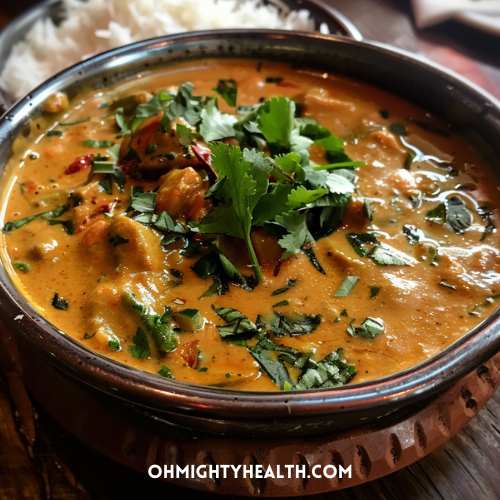
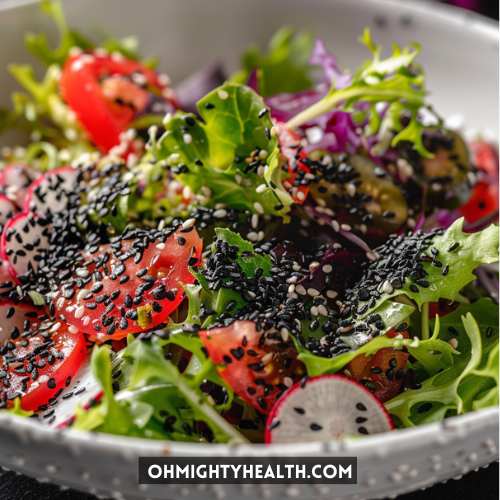
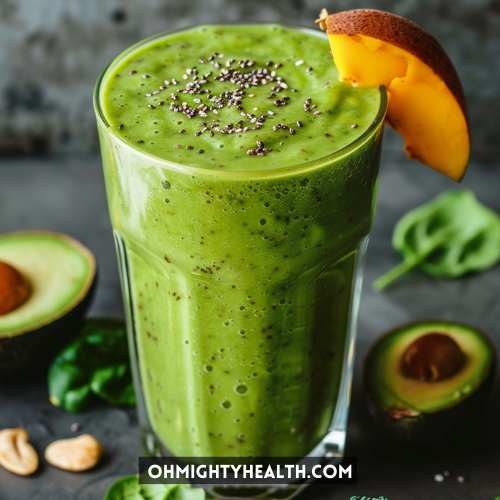
Capsules & supplements
For those who might not enjoy the taste of black seed oil, capsules and supplements offer a convenient alternative.
They provide a precise dosage, making it easier to control your intake.
I recommend looking for supplements that are cold-pressed and packaged in dark bottles to ensure they retain their potency.
Taking one to two capsules daily can be a straightforward way to enjoy the health benefits of black seeds without altering the flavour of your meals.
Homemade remedies
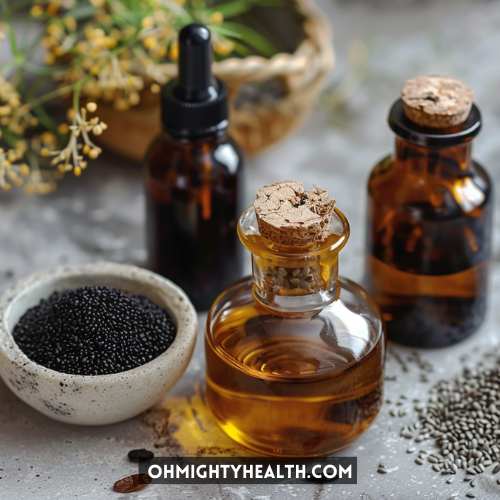
Creating homemade remedies with black seeds or their oil is an excellent way to harness their benefits.
For a simple, soothing skin treatment, I mix a teaspoon of black seed oil with any other carrier oil, like jojoba or coconut oil, and apply it directly to the skin.
This mixture can help with everything from dry skin to acne.
Another remedy I often suggest for boosting the immune system is to sprinkle ground black seeds on salads or incorporate them into smoothies, as seen above.
For those struggling with digestive issues, a teaspoon of black seed oil mixed into herbal tea can provide relief. Good teas for digestion include: peppermint, chamomile and fennel.
This approach supports the digestive tract gently and naturally.
Remember, when creating these homemade remedies, quality matters.
I can’t stress enough that using high-quality, organic black seeds or oil can significantly enhance the effectiveness of these treatments!
Tips for consistency and maximising benefits
To truly reap the medicinal properties of black seeds, consistency is crucial!
Set a daily reminder to take your black seeds or black seed oil at the same time each day to establish a routine.
These ideas might help:
- Incorporate into a wellness journal: Keep track of your black seed consumption journey along with notes on how you feel physically and mentally. This can help you see the benefits over time and, hopefully, motivate you to continue.
- Pair with other healthy habits: Link your black seed intake with another daily habit, such as drinking a morning glass of water or having your evening tea. This association can help ensure you don’t forget your black seeds.

For example, I add all my seeds to my morning oatmeal. It’s my trick for remembering to take them every day.
Experimenting with different ways to include black seeds in your meals can also keep things interesting and ensure you stick with it.
Dosage recommendations
Figuring out the right dosage of black seeds or black seed oil is crucial, especially for beginners.
Generally, I recommend starting with a small amount, such as half a teaspoon of the seeds or a few drops of the oil daily, and observing how your body responds.
The appropriate dosage for black seeds or black seed oil can vary depending on the individual’s health status and the specific health benefits they are seeking. However, here are some general guidelines to consider:
For black seeds
- In the kitchen: Start with 1/4 to 1/2 teaspoon of whole or ground black seeds added to dishes. This can be adjusted according to taste and tolerance.
- Health: A common dosage for health purposes is about 1 to 2 grams of ground black seeds, taken up to three times daily.
For black seed oil
- Supplements: For general health benefits, the recommended dosage is usually about 1/2 to 1 teaspoon (2-5 mL) of black seed oil, taken twice daily.
- Therapeutic use: Dosages for specific conditions (e.g., high blood pressure, asthma) may range from 1 teaspoon (5 mL) to 1 tablespoon (15 mL) taken twice daily.
It’s important to note that these dosages are general recommendations, and the optimal dose can vary.
Always consult with a healthcare provider, especially if you have underlying health conditions or are taking medications, to determine the most appropriate dosage for your situation.
Storing your black seeds
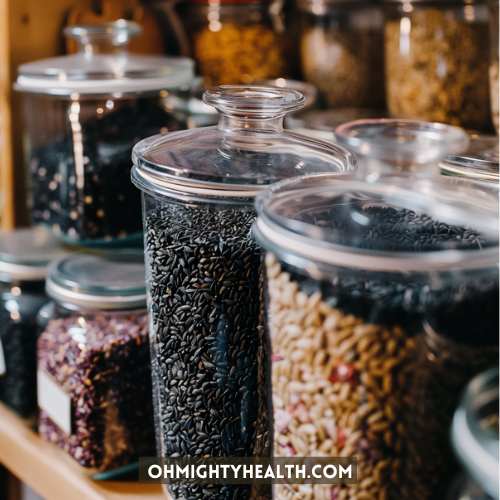
Storing black seeds correctly is key to preserving their potency and flavour.
I always keep my seeds in a cool, dark place, tightly sealed in an airtight container.
This method prevents moisture and air from spoiling the seeds.
If you have black seed oil, make sure to store it in the refrigerator after opening to maintain its freshness and nutritional value for as long as possible.
Proper storage ensures that you get the most out of your black seeds for both culinary and medicinal uses.
Precautions and potential side effects
When incorporating black seeds into your routine, you might experience some side effects, especially if you’re not accustomed to them.
These can include digestive issues, allergic reactions, or a drop in blood sugar levels.
It’s also possible for black seeds to affect blood clotting due to their impact on the immune system.
If you notice any severe reactions, it’s crucial to stop taking black seeds and consult a healthcare provider.
Who should avoid black seeds?
Pregnant and breastfeeding women should avoid black seeds due to insufficient research on their safety during these periods.
Additionally, individuals with bleeding disorders or those scheduled for surgery should steer clear of black seeds because of their potential to increase the risk of bleeding.
The pharmacological properties of black seeds can have significant effects, so it’s essential to consider your health condition before incorporating them into your routine.
People with a known allergy to black seeds or any member of the Ranunculaceae family should avoid them to prevent allergic reactions.
Given their potent effects, anyone with a chronic health condition should consult a healthcare professional before starting black seeds to ensure they don’t interfere with existing treatment plans or medications.
FAQs
1. What exactly are black seeds, and why are they beneficial?
Black seeds, also known as Nigella sativa, black cumin, or kalonji, are tiny seeds with a vast history of medicinal use. They’re packed with anti-inflammatory compounds, vitamins, minerals, and antioxidants, making them incredibly beneficial for health.
2. How can I start incorporating black seeds into my diet?
You can start by adding black seeds to your favourite dishes like bread, curries, or salads. Black seed oil can also be used in salad dressings or taken as a supplement for a direct health boost.
3. Are there any precautions I should be aware of before using black seeds?
Yes, black seeds can interact with certain medications, especially those for diabetes and blood thinning. Pregnant and breastfeeding women, individuals with bleeding disorders, and those with allergies to the Ranunculaceae family should avoid black seeds.
4. Can black seeds improve my skin health?
Absolutely! Black seed oil, rich in fatty acids and antioxidants, is great for nourishing the skin. It can help with issues like dry skin and acne when applied topically or taken as a supplement.
5. How do black seeds support digestive health?
Black seeds and their oil can aid digestion due to their fibre content and anti-inflammatory properties. They help in smoothing digestive processes and can relieve certain digestive issues.
6. What’s the best way to store black seeds or black seed oil?
Store black seeds in a cool, dark place in an airtight container. Black seed oil should be kept in the refrigerator after opening to maintain its freshness and potency.
7. How do I choose high-quality black seed oil?
Look for cold-pressed black seed oil, which ensures maximum retention of nutritional and medicinal properties. High-quality oil is usually dark amber in colour and stored in dark, glass bottles.
8. Can black seeds help with weight loss?
While black seeds can support weight loss by boosting metabolism and reducing appetite due to their fibre content, they should be complemented with a healthy diet and regular exercise for best results.
9. How long does it take to see health benefits from using black seeds?
The time it takes to see health benefits from black seeds can vary depending on the individual and their health goals. Consistency is key, and some benefits may be noticeable within a few weeks, while others might take longer.
Conclusion
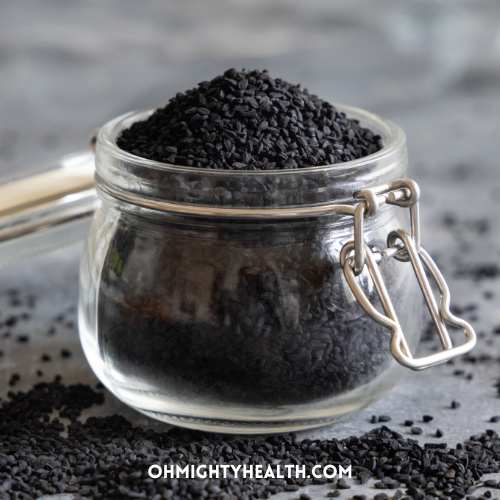
In this journey through the powerful world of black seeds, we’ve explored their remarkable health benefits, versatile uses, and the importance of incorporating them into our daily lives for holistic well-being.
As we conclude, it’s clear that black seeds, with their rich nutritional profile and therapeutic potential, stand out as a natural superfood.
Whether used in culinary creations, taken as a supplement, or applied in skincare, black seeds offer a natural path to enhancing health and vitality.
Embracing black seeds is not just about adding a new ingredient to your pantry; it’s about welcoming nature’s gift for a healthier, more vibrant life.
Let’s carry forward the wisdom of centuries and make black seeds a cornerstone of our wellness journey, embracing their benefits wholeheartedly.
Please leave your comments below.
Resources
1. Hosseinzadeh H, Moghim FF, Mansouri SMT. Effect of Nigella sativa seed extracts on ischemia reperfusion in rat skeletal muscle. Pharmacologyonline. 2007;2:326–35.
2. Hosseinzadeh H, Eskandari M, Ziaee T. Antitussive effect of thymoquinone, a constituent of Nigella sativa seeds, in guinea pigs. Pharmacologyonline. 2008;2:480–4.
3. Forouzanfar F, Bazzaz BSF, Hosseinzadeh H. Black cumin (Nigella sativa) and its constituent (thymoquinone): A review on antimicrobial effects. Iran J Basic Med Sci. 2014;17:929–38.
4. Sayeed MSB, Shams T, Hossain SF, Rahman MR, Mostofa AGM, Kadir MF, et al. Nigella sativa L. seeds modulate mood, anxiety and cognition in healthy adolescent males. J Ethnopharmacol. 2014;152:156–62.
5. Ahmed MW SR, Mahammed NL, Nasir MAM. Anti ulcer effect of Nigella sativa linn. Against gastric ulcers in rats. Int J Res Dev Pharm Life Sci. 2016;5:2006–9.
6. Boskabady MH, Mohsenpoor N, Takaloo L. Antiasthmatic effect of Nigella sativa in airways of asthmatic patients. Phytomedicine. 2010;17:707–13.
7. Zhang M, Du H, Huang Z, Zhang P, Yue Y, Wang W, et al. Thymoquinone induces apoptosis in bladder cancer cell via endoplasmic reticulum stress dependent mitochondrial pathway. Chem Biol Interactions. 2018;292:65–75.
8. Salem ML. Immunomodulatory and therapeutic properties of the Nigella sativa L. seed. Int Immunopharmacol. 2005;5:1749–70.
9. Majdalawieh AF, Hmaidan R, Carr RI. Nigella sativa modulates splenocyte proliferation, Th1/Th2 cytokine profile, macrophage function and NK anti tumor activity. J Ethnopharmacol. 2010;131:268–75.
10. Khan MA. Chemical composition and medicinal properties of Nigella sativa Linn. Inflammopharmacology. 1999;7:15–35.
11. Bukhari MH, Khalil J, Qamar S, Qamar Z, Zahid M, Ansari N, et al. Comparative gastroprotective effects of natural honey, Nigella sativa and cimetidine against acetylsalicylic acid induced gastric ulcer in albino rats. J Coll Physicians Surg Pak. 2011;21:151–6.
12. Salim EI. Cancer chemopreventive potential of volatile oil from black cumin seeds, Nigella sativa L., in a rat multi organ carcinogenesis bioassay. Oncol Lett. 2010;1:913–24.
13. Hosseini M, Mohammadpour T, Karami R, Rajaei Z, Sadeghnia HR, Soukhtanloo M. Effects of the hydro alcoholic extract of Nigella sativa on scopolamine induced spatial memory impairment in rats and its possible mechanism. Chin J Integr Med. 2015;21:438–44.
14. Hosseinzadeh H, Tafaghodi M, Mosavi MJ, Taghiabadi E. Effect of aqueous and ethanolic extracts of Nigella sativa seeds on milk production in rats. J Acupunct Meridian Stud. 2013;6:18–23.
15. Hosseinzadeh H, Tafaghodi M, Mosavi MJ, Taghiabadi E. Effect of aqueous and ethanolic extracts of Nigella sativa seeds on milk production in rats. J Acupunct Meridian Stud. 2013;6:18–23.

